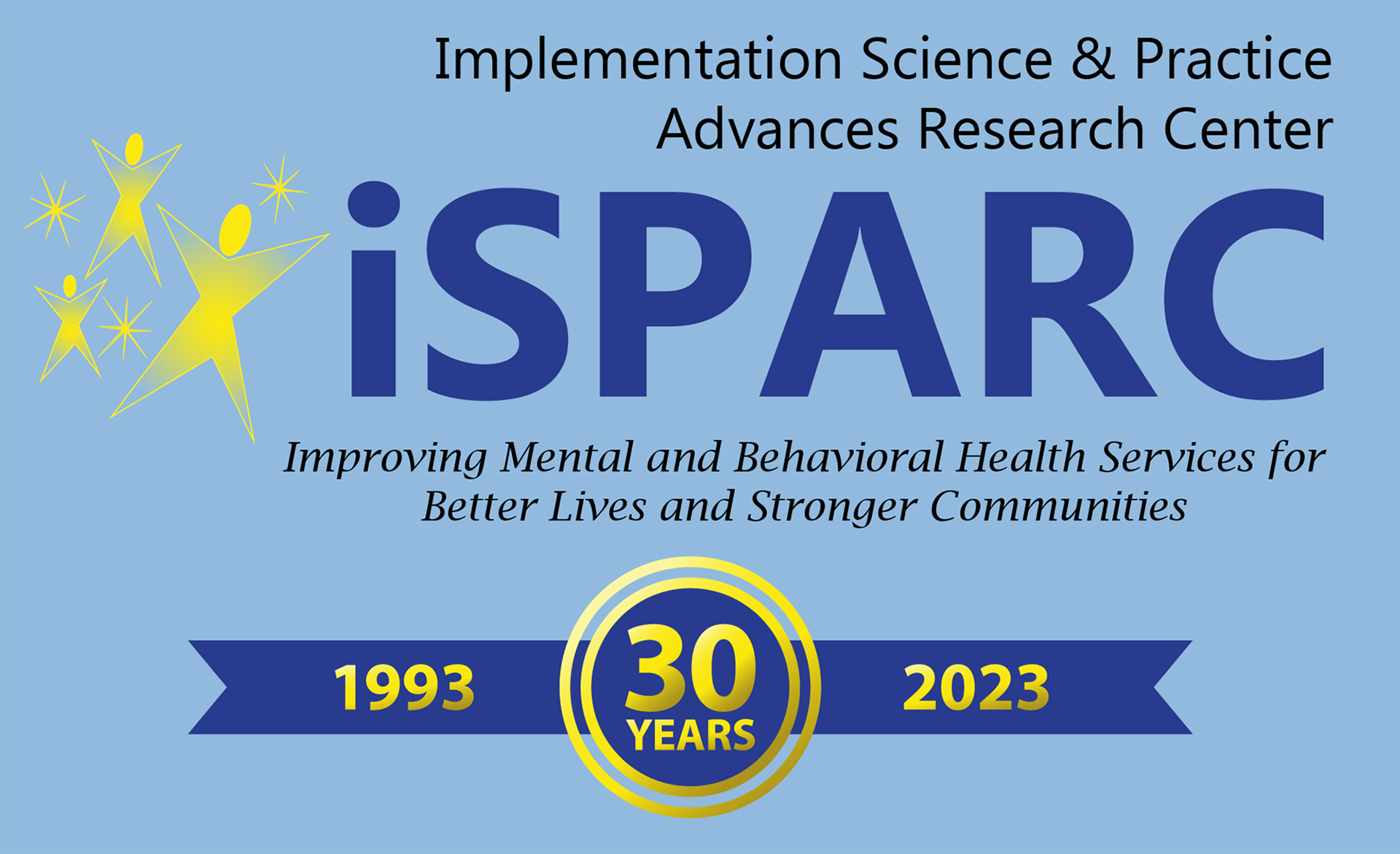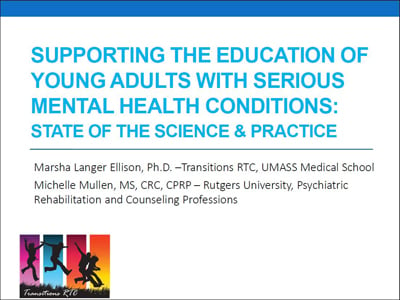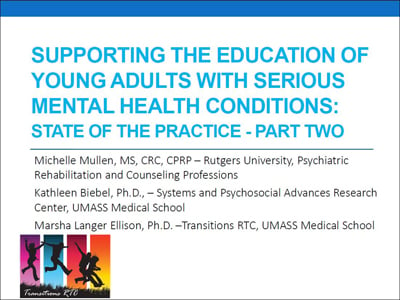Supporting the Education of Young Adults with Serious Mental Health Conditions: State of the Science & State of the Practice
Description:
The majority of college students with serious mental health conditions do not finish school, jeopardizing their long-term employment. Can supported education services help?
Marsha Ellison, Michelle Mullen and Kathleen Biebel, researchers and trainers of supported education services, will host a 2-part webinar series presenting the state of the science 2nd state of the practice of supported education and related strategies for achieving post-secondary education goals of young adults with SMHC.
Part 1 Supported Education, State of the Science
- What is supported education?
- Why is it important?
- What is the evidence?
Webinar Related Materials
Description: Part 2 Supported Education, State of the Practice
The majority of college students with serious mental health conditions do not finish school, jeopardizing their long-term employment. Can supported education services help?
Marsha Ellison, Michelle Mullen and Kathleen Biebel, researchers and trainers of supported education services, hosted a 2-part webinar series presenting the state of the science 2nd state of the practice of supported education and related strategies for achieving post-secondary education goals of young adults with SMHC.
- What are the education support needs of youth and young adults with mental health conditions?
- What are the practices and services that meet those needs?


